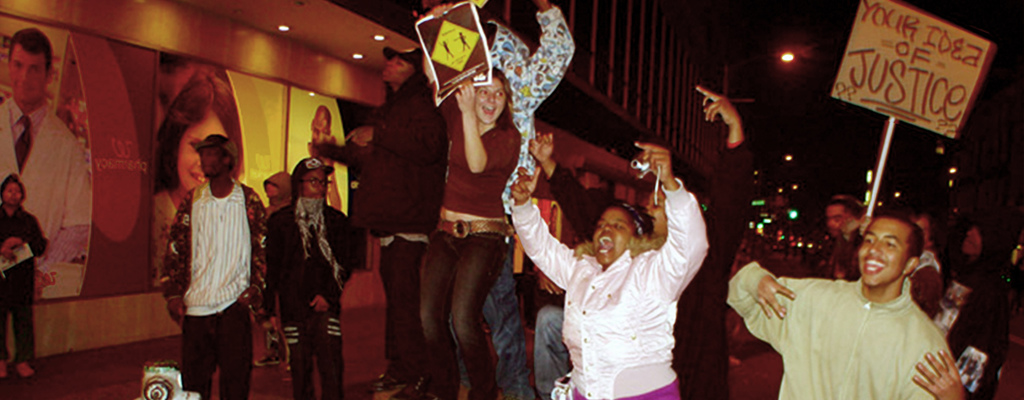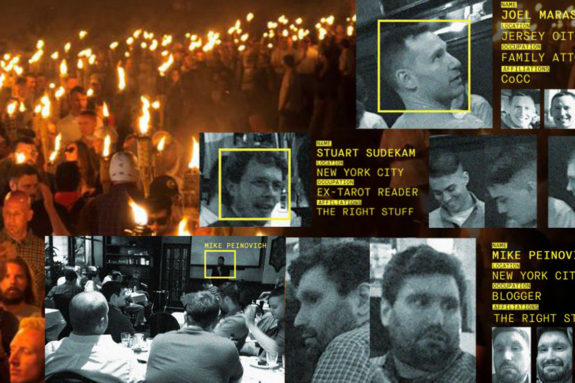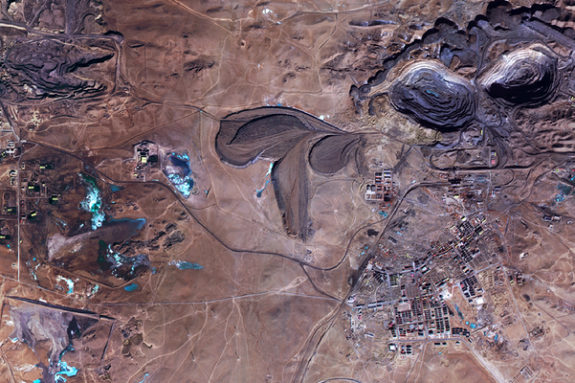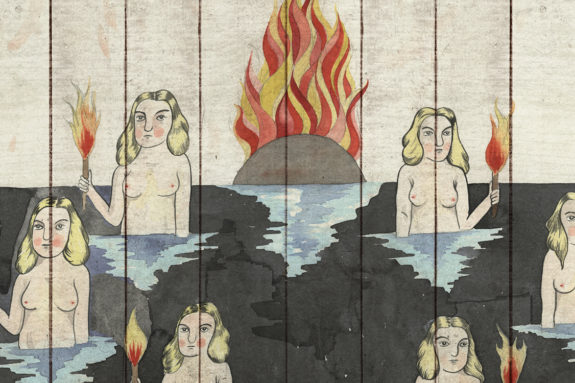Let’s bring the gasoline in 2019.
What to make of the past decade? Long gone is Obama’s post-racial illusion of hope tethered to change—vanished, too, the equally illusory promise of sustained capitalist growth that upheld it. These promises arrived stillborn before Obama was even inaugurated as—in an apparent irony—black freedom struggles broke out at the very moment they were supposed obsolete. The irony is only a seeming one, however: Obama’s words may have been empty, but the expectation they offered was real. The promise of change can prove explosive when change itself is deferred, confronted with the tenacity of the brutal same. And when resurgent white supremacy is thrown into the mix, well….
There are decades where nothing happens, as Lenin was rumored to have said, and weeks where decades happen. Perhaps we might seek the meaning of the last decade in the weeks, indeed days, the momentary flashes, the smolders and flickers that have made it what it is. Ten years ago tonight, transit cop Johannes Mehserle shot Oscar Grant in the back while he lay, face down, on the platform of Fruitvale station in Oakland. As tragic as it is to say, we don’t remember Grant because he died—although we should. We remember him because those who loved and knew him, those who only knew of him, refused to take his death lying down. Because they—we—resisted. Because of the rebellions, indeed the riots that followed. Three to be precise: January 7th, 14th, and 30th of 2009. Three promises that we would not go quietly.
To speak of riots is to evoke the specter of the irrational, but if the Oscar Grant rebellions taught us anything, it is that nothing was more rational. He was murdered in the early morning of the New Year; a week later his killer walked free. The streets demanded Mehserle’s arrest, and the streets sought the means adequate to the task. Asking, pleading, demanding—nothing else had worked. If turning to rebellion thus seemed essentially rational beforehand, in retrospect it’s undeniable. The state was not going to arrest and charge a cop—it hadn’t happened in decades. But with the threat of a second rebellion hanging over Oakland, the governor leaned on the District Attorney, and the D.A. charged murder. Voilà.
“Our world is on fire, as it should be, and Oscar Grant was our spark.”
“The rich,” C.L.R. James writes, “are only defeated when running for their lives”—although many in Oakland did not need to read it to know it. Power had been proven in the streets. Not that there weren’t those who would deny this fact even from amid the smoldering ashes. The rebels who insisted on maintaining pressure in the streets walked a fine line between, on the one hand, condescending nonprofits that sought to disarm their anger, and, on the other, those undialectical abolitionists who were uncomfortable demanding that even a cop be sent to jail. But we knew then as we know now that jails weren’t made for cops, that this unwelcome content is the best way to explode their unacceptable form. Demanding jail for killer cops—and enforcing that demand in the streets—was a step toward prison abolition, not away from it.
Also clear in retrospect is that ivy-league hand-wringing over the certainty that riots only provoke right-wing reaction is mistaken in this case—in fact, such analyses are most often wrong, and lead regardless into a political blind alley of victim-blaming. Keeanga-Yamahtta Taylor has stretched this truth across half a century, returning our focus to the streets in the process: black rebellions of the 1960s didn’t lead to simple backlash, but also pressured political leaders, compelled otherwise impossible reforms, transformed consciousness, and shifted opinion—white opinion included—in the process. “The entire dynamic of the Black struggle pushed mainstream politics to the left,” she writes, as it does again today.
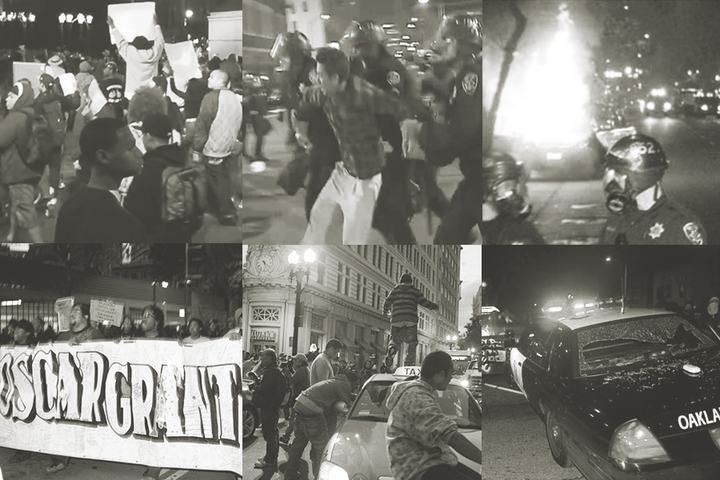
The Oakland rebellions helped to propel a broader cycle of struggle that, while already underway, was irreversibly remade in the process. You want change? We’ll show you change. They transformed a city and cast shockwaves across a country; mobilized militants and developed cadre by leaps and bounds; deepened hostility to the police, the state, and the nonprofit containment apparatus; birthed organs of popular democracy. They taught us our power. Some of those thrown forth continued to fight the police, others brought their strategic insight to student rebellions later that same year, many moved back-and-forth between the two. Their methods and words traveled across the country to other campuses, laying the groundwork for Occupy Wall Street itself. This vast pendulum swung back to Oakland, infusing the Occupy encampment with all the autonomy and militancy evoked by its chosen name—the Oakland Commune. But these characteristics were perhaps even clearer, their historical sedimentations on full display, in Occupy Oakland’s rebaptism of this communal space: Oscar Grant Plaza. It accompanies the other names and places inextricable from this massive wave of resistance we inhabit, this great spiral of struggle whipping increasingly violent eddies across country and world. Ferguson. Baltimore. Standing Rock.
Our world is on fire, as it should be, and Oscar Grant was our spark. In that moment, Oakland taught us that we were more than we seemed, and stronger by far. Taught us that ideology is a motherfucker, but it’s not invincible. That small struggles can unleash larger ones, and so on. But in what perverse irony did Oscar Grant set us ablaze at the same moment that he himself was extinguished? Again, the irony is only a matter of seeming—his fire is our own, and he simply passed on to us the “torch to set the world alight.” Not all fire is cleansing, this much is undeniable a decade on. But amid the brutal devastation of our collective nightmare, Malcolm’s imperative remains: pray for wind.

